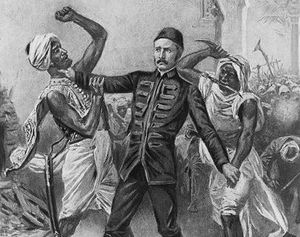Peter Rhodes on puzzling signs, staying alive and the privilege of meeting the very old
Read today's column from Peter Rhodes.

Grammar in a crisis. The authorities tried to keep people away from the Lake District with roadside signs: “Lakes is closed.” Jars a bit, doesn't it? But then “Lake are Closed” is hardly any better. A Black Country reader suggests: “Lakes am Shut.”
It's always difficult saying exactly what you want in the few words possible on a road sign. My favourite, from a gantry on the M6, had no punctuation and has many meanings: “No phones await police.”
Bob Weighton, the world's oldest man, turned 112 this week. Born in 1908, he puts his longevity down to "avoiding dying" and who can argue with that?
For us hacks, it can be a huge privilege to meet people of such a great age. It's like walking into a library of unread reference books as one person gives you their unique take on the great events of an era. In 1987 at Fforestfach, Swansea, I spent a couple of hours with John Evans, then the oldest authenticated man in the world. In his cosy parlour, the 110-year-old former miner cast his mind back to his childhood and said softly: “You can't imagine how it was, the gloom that came over people here in these streets. You would think the world had come to an end.” He was recalling a national tragedy and a seismic shock. Not the blitz of 1940, not the First World War, not even the death of Queen Victoria. Elbow resting on the table, hand over his closed eyes, John Evans was describing the scenes in the streets of his native South Wales when some terrible news arrived from the Sudan. I take some pride in having interviewed a man who could remember the death of General Charles George Gordon in Khartoum at the hands of the Mahdi's army - in 1885.
Like so many old folk, when asked what was the happiest time he had known, John Evans turned to his distant past: “I believe the best time was during Mr Asquith's government at the beginning of the century but before the First World War. It was an affluent time, as I remember. Everyone seemed contented. This was a happier country then.”
And for what it's worth, I believe this country will be happy again, once this pandemic passes and we change our ways to avoid another. Less travel, less waste, less pollution, less crowding. It is reported that about 2,500 cases of coronavirus have been detected in Ireland. How many of them or their contacts were at the Cheltenham Festival?
Presumably the endlessly-repeating TV adverts were booked long before the pandemic but do they need to play them quite so often? The nation is already tense. It will not stand many more repeats of Viking Cruises, Gio Compario's deer-related crash for GoCompare, or the irritating husband who loves the cushions at Dunelm. Enough, already.





